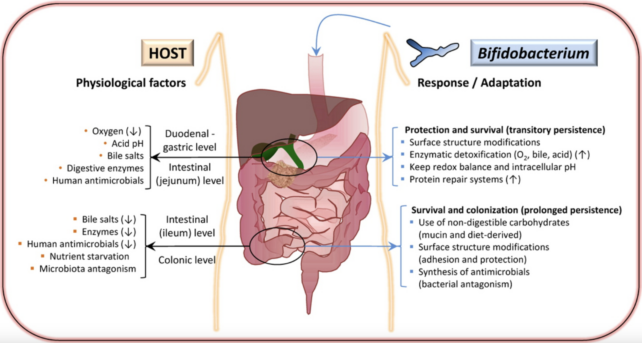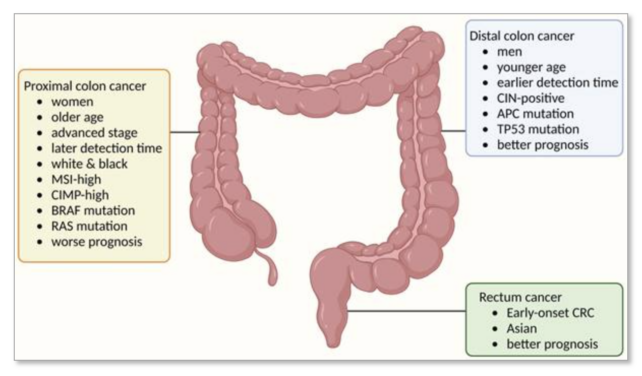ARTICLE AD
Just two servings of yogurt a week may protect the bowels from some specific types of cancer, according to a new long-term study in the US.
For years now, scientists have suspected yogurt and its living bacteria have benefits for gastrointestinal health, and yet not all research on the topic aligns on what those benefits are and when they are reaped.
This new analysis helps explain some of the confusion.
Overall, epidemiologists did not find a significant association between yogurt and the overall incidence of colorectal cancer – the third most common cancer worldwide and the second leading cause of cancer-related deaths.
However, when researchers split colorectal cancer cases into subtypes, they did find a significant result.
The findings align with several other observational studies, which suggest yogurt intake may have anti-tumor properties.
"Our study provides unique evidence about the potential benefit of yogurt," says epidemiologist Shuji Ogino from Brigham and Women's Hospital and Harvard University.
"My lab's approach is to try to link long-term diets and other exposures to a possible key difference in tissue, such as the presence or absence of a particular species of bacteria. This kind of detective work can increase the strength of evidence connecting diet to health outcomes."
While the results are only observational, they cover the health and self-reported lifestyles of 87,000 females and close to 45,000 males, tracked for three decades or more. Ogino and his colleagues' dataset encompasses a combined total of over 3 million years of individual follow-up data.
Individuals diagnosed with colorectal cancer who consumed two or more servings of yogurt a week were 20 percent less likely to have a Bifidobacterium-positive tumor compared to those who consumed less than one serving of yogurt a month. This was especially true for proximal tumors in the upper part of the intestinal tract.
Bifidobacterium are microbes that are ubiquitous in the human intestine and in the average bowl of yogurt. In about 30 percent of colorectal cancer cases, this bacterium is incorporated into tumor tissue, where it is commonly associated with a particularly aggressive form of the cancer.
 Role of Bifidobacterium in gut health. (Sánchez et al., Pharmacological Research, 2013).
Role of Bifidobacterium in gut health. (Sánchez et al., Pharmacological Research, 2013).Bifidobacterium seems to thrive in the low-oxygen tumor microenvironment, and its presence within certain colon tumors suggests it is leaking past the intestinal barrier into colon tissue at a higher rate than typical.
Perhaps counterintuitively, eating more Bifidobacterium could help prevent this leakage in the long run.
Initial studies suggest the bacterium may have antioxidant, anti-inflammatory, and immune activation effects, possibly impacting the integrity of the gut microbiome and the intestine's semipermeable barrier.
Whether or not yogurt can deliver these benefits will require further research, but observational evidence is mounting.
"Our finding suggests that yogurt intake might have a cancer-preventive effect for colorectal cancer with disrupted intestinal barrier," the authors of the current analysis explain.
"Further studies are warranted to elucidate the potential mechanisms for the effects of long-term yogurt intake on colorectal carcinogenesis."
 Locations of colon cancer. (Yang et al., International Journal of Medical Sciences, 2024)
Locations of colon cancer. (Yang et al., International Journal of Medical Sciences, 2024)Compared to distal colon cancer, which results in tumors further down the intestinal tract, proximal colon cancer has a lower survival rate. These types of cancers are also on the rise.
The idea that food could work as preventative medicine is worth exploring further. A randomized trial in 2021 from Stanford University found that fermented foods like yogurt can influence the microbiome and immune system in healthy adults.
Epidemiologist Andrew Chan from Massachusetts General Hospital, who was part of the recent analysis, says their paper "adds to the growing evidence that illustrates the connection between diet, the gut microbiome, and risk of colorectal cancer."
"It provides an additional avenue for us to investigate the specific role of these factors in the risk of colorectal cancer among young people."
The study was published in Gut Microbes.

 8 hours ago
6
8 hours ago
6 

